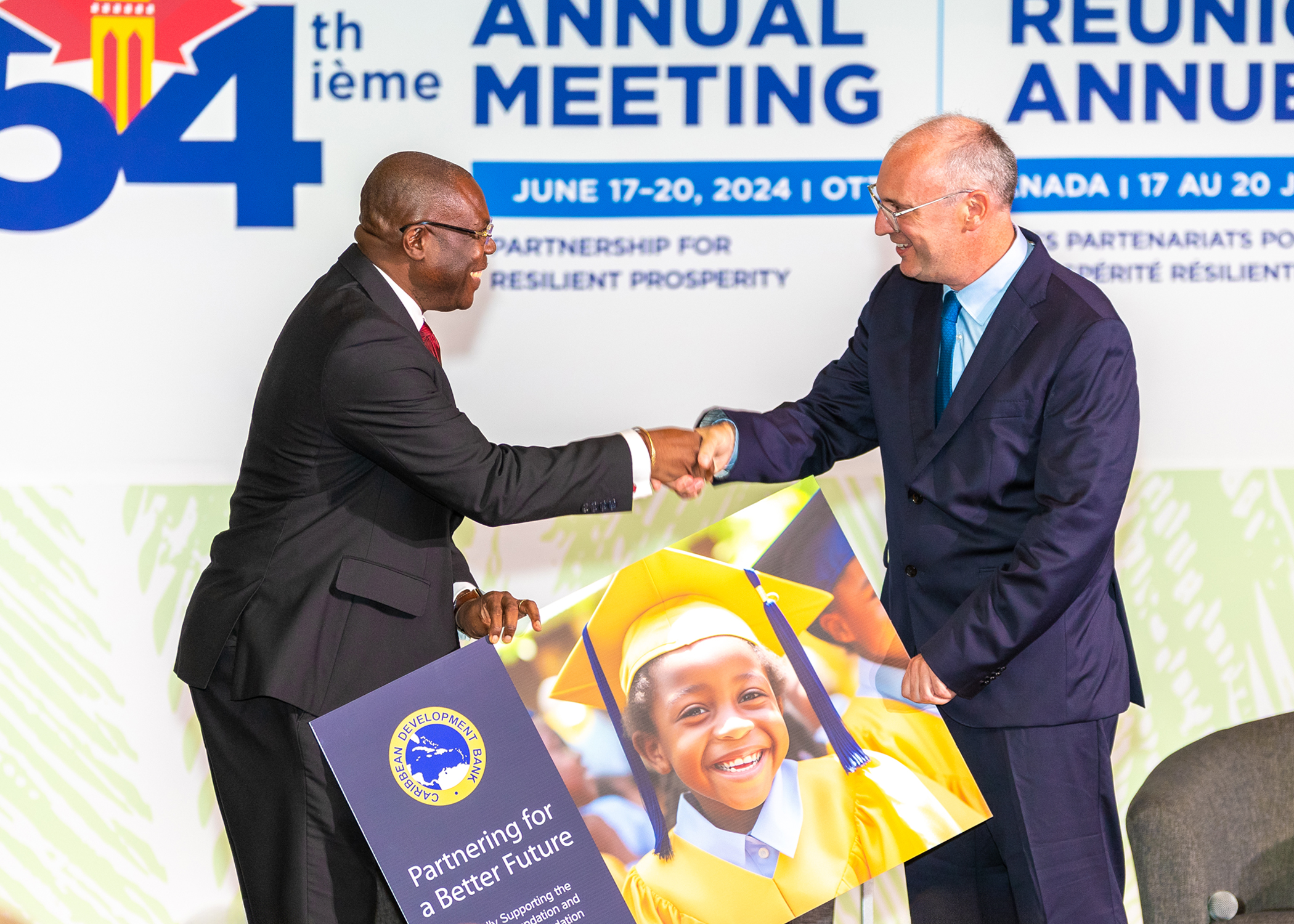Caribbean Business Leader PB Scott Urges Regional Reform to Drive Economic Development

Addressing protectionism, bureaucracy, labour shortages and scaling up digitalisation were among the measures recommended to regional governments for driving economic development by Mr. Paul Barnaby “PB” Scott, CEO of the Musson Group, a Caribbean conglomerate.
In delivering the 24th Annual William G. Demas Memorial Lecture, Mr. Scott drew from his experience over the last two decades when he transformed the Musson Group from a Jamaican consumer wholesale business into a diversified regional corporation operating across 30 countries, with over 7000 employees and annual revenues topping USD1.6 billion.
The address, entitled “Economic Therapy for a Frustrated Regionalist”, unfolded as a compelling comparative analysis of regional business ecosystems and those of other countries in which Musson operates.
In his analysis, Mr. Scott, whose companies compete in various sectors – including food, pharmaceuticals, information technology, and insurance – cited challenges with protectionism, bureaucracy, and free movement of people as hindering free trade and the scaling up of production across the Caribbean.
“In our markets, we overcomplicate things,” he said. “We're protecting one or two people in markets at the expense of the general population. If we want to make real change, if we want to have real economic growth, we have to have hard conversations and address some of these issues, because they're not going away, and they're structural, and they just don't make sense.”
While highlighting Central America’s high levels of investment in digitalisation, Mr. Scott lamented that in contrast, governments in the Caribbean, “have yet to really invest in technology transformation. That is something that we must address, and it's not something that can wait,” he said. “The rest of the world is moving ahead at a very fast pace, and we have to get with it: if we don't, our productivity is going to continue to lag.”
The seasoned business operator also emphasised the importance of addressing the Region’s labour market shortages. “Somewhere between 60 and 70% of the graduates in our Region emigrate within two years of graduation,” he said. “So, in a country like Jamaica where we spend a lot of our taxpayers’ money on subsidised, free education all the way up to tertiary level, we then do not get the benefit of that education back for our own productivity... We are giving away a lot of labour and capacity.”
He also encouraged the Region’s governments to embrace immigration as part of building up the local labour market. “We have to start accepting that productivity doesn’t just drop from the sky; it actually comes from people,” he said. “People are the most important component of an economy.”
Another element labelled as critical by the Jamaican chief executive was cross-Caribbean cooperation and coordination. “Our Region has so much potential, but it is very limited unless we harness our productivity and our capacity; and to do that, we need to be very human-centric to advance the process of regional integration,” he said.
The 2024 Williams G. Demas Lecture was one of the signature events staged by the Caribbean Development Bank during its 54th Annual Meeting which wrapped up last week in Ottawa, Canada. The series is as a tribute to the CDB’s second President who served the Caribbean in several pivotal roles including Secretary General of CARICOM, Governor of the Central Bank of Trinidad and Tobago, and Chancellor of the University of Guyana.



